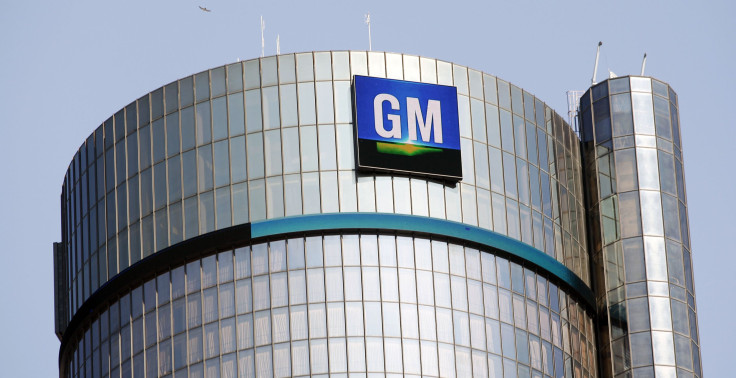General Motors Earnings Beat Estimates, But Strike Costs Hurt

General Motors (NYSE:GM) said that its third-quarter net income fell 8.7% from the third quarter of 2018 to $2.3 billion, a better-than-expected result after a nationwide strike shut down GM's U.S. factories in mid-September.
Excluding one-time items, GM earned $1.72 per share, well above the $1.31 average estimate from analysts polled by Thomson Reuters. Revenue of $35.5 billion, down 0.9% from a year ago, was also solidly above Wall Street's $33.82 billion estimate.
As expected, GM also cut its full-year guidance to reflect the effects of production lost during the strike.

What was the impact of the strike?
Per GM, here is how the United Auto Workers' national strike against the automaker affected its third-quarter results:
- Adjusted earnings per share would have been $0.52 higher had the strike not happened.
- Adjusted automotive free cash flow would have been about $400 million higher.
- GM North America's revenue would have been $3.3 billion higher.
- GM North America's EBIT-adjusted would have been $1.3 billion higher.
What else happened at GM in the third quarter?
Except as noted, all profit and loss figures in this section are presented on an EBIT-adjusted basis.
- GM North America's EBIT-adjusted rose 7% from the third quarter of 2018 to $3.02 billion, despite a 5% decline in wholesale shipments. The region's revenue inched up 1.1% to $27.97 billion. The results reflect the strong sales and profitability of the company's all-new pickups, continued growth in crossover SUV sales, and the effects of an ongoing cost-reduction effort, offset somewhat by the impact of the strike and recall-related costs.
- GM North America's EBIT-adjusted margin, a number that is closely followed by auto investors, was 10.8% in the third quarter versus 10.2% a year ago.
- The company's equity income from its joint ventures with Chinese automakers fell to $282 million from $485 million in the prior-year period. That was not unexpected; GM's sales in China dropped 15.8% in the third quarter amid ongoing market weakness, though a more favorable mix of products sold helped offset the impact of the sales decline.
- GM International posted a loss of $65 million, down from a profit of $139 million a year ago, on the decline in China equity income.
- GM Cruise, the self-driving subsidiary, lost $251 million versus a loss of $214 million in the prior-year quarter. The company said that Cruise's spending continues to be "on plan" as it works toward the launch of its self-driving taxi service.
- GM Financial, the financial-services subsidiary, generated adjusted pre-tax profit of $711 million, up sharply from $498 million in Q3 2018. The loan and lease portfolio is growing, while credit metrics remain solid (and are slightly improved from a year ago).
Special items, cash, and debt
GM took two special items totaling $267 million in the third quarter: a one-time charge of $390 million related to its restructuring efforts and a one-time credit of $123 million related to a favorable tax-related court decision in Brazil. GM took total charges of $440 million in the third quarter of 2018.
As of Sept. 30, 2019, GM had $20.7 billion in cash available to its automotive business, and an additional $16.5 billion in available credit lines, for total liquidity of $37.2 billion. That's up from $33.8 billion as of the end of 2018.
On the other side of the ledger, the automaker had $15.3 billion in long-term debt as of Sept. 30, versus $14 billion at the end of 2018. Its unfunded pension obligations stand at $5.7 billion, unchanged from the end of 2018.
Looking ahead: GM's guidance for 2019
As anticipated, the effects of the strike led GM to trim its full-year 2019 guidance. It now expects:
- Earnings per share (GAAP) between $4.28 and $4.69. (2018 result: $5.58.)
- Adjusted earnings per share between $4.50 and $4.80. (Prior guidance: Between $6.50 and $7.00. 2018 result: $6.54.)
- Automotive operating cash flow between $5.5 billion and $7.5 billion. (2018 result: $11.7 billion.)
- Adjusted automotive free cash flow between $0 and $1 billion. (Prior guidance: Between $4.5 billion and $6 billion. 2018 result: $3.8 billion.)
This article originally appeared in the Motley Fool.
John Rosevear owns shares of General Motors. The Motley Fool has no position in any of the stocks mentioned. The Motley Fool has a disclosure policy.






















